You are here
How did Advanced Clinical Practitioners respond to COVID-19
Contents
Advanced Clinical Practitioners are trained to an advanced clinical level and to be adaptable, resilient members of the multi-disciplinary team.
Their training has prepared them to be highly valuable; their knowledge, skill and experience is broad and allows them to adapt to various environments and treat complex patient needs, often with multiple co-morbidities. Their development allows them to respond safely, efficiently and effectively during times of increased pressure, often leading through change. As a result, they have played key roles during the COVID-19 response; moving to areas of increased service demand providing consistency, contributing to patient safety and providing high-quality care.
 Deepak Agnihotri, Cheshire and Wirral Partnership NHS Foundation Trust
Deepak Agnihotri, Cheshire and Wirral Partnership NHS Foundation Trust
Deepak was working as a Trainee Advanced Clinical Practitioner - Learning Disabilities.
“During COVID we extended the hours of our service to be more responsive to people with learning disabilities who were at high risk. I was able to use my advanced clinical skills to successfully support prompt discharges from hospital, diagnose people presenting with multiple co-morbidities to get them right care at the right time and work to prevent hospital admission, as people with learning disabilities are already at high risk of premature death.
As a trainee advanced practitioner, I am working across the four pillars of practice leading on BAME risk assessments, working as deputy chair of the physical health pathway and contributing to the cognitive pathway in our learning disabilities care group. During the pandemic I also successfully supported a final year physiotherapy student to meet their learning needs, qualify and get a job in the NHS.
A big challenge was to discuss advanced care planning appropriately and sensitively, without being face to face. I am now planning to set up virtual dementia review clinics as a quality improvement project and start using my newly trained prescribing skills and knowledge to work with people with dementia. I am amazed to see the flexibility and courage of all the staff in providing outstanding care to all service users. I am very optimistic that with the skills I have gained during this challenging time will help me to improve our services, to provide person-centred care in future as a qualified advanced clinical practitioner.
On reflection, before COVID-19 I did not consider that my BAME background was a factor and needed specific risk assessment. During my ACP training, I have gained leadership skills which have helped me to improve my confidence. I have now taken a leadership role and represented my trust BAME group and I am now a representative on the newly formed CWP BAME+ group at NHSE. I have worked with the equality and diversity lead of the trust to provide more guidance to support the implementation of risk stratification to BAME colleagues. I am proud to have found myself a new leadership domain through the COVID crisis. I am keen to help ensure that this is considered as part of ACP training in the future.”
 Sarah Anderson, Hull University Teaching Hospitals NHS Trust
Sarah Anderson, Hull University Teaching Hospitals NHS Trust
Sarah was working as an Advanced Clinical Practitioner Trauma and Orthopaedics & Team Leader.
“Usually I work as an advanced clinical practitioner within the Orthopaedic Medical Team and during COVID, I continued to work as part of the medical team.
It was recognised by the Trust Leadership Team, that having ACP expertise available at the weekend would bolster the team and build responsive clinical decision making across the whole week. As an advanced practitioner, I can assess, diagnose, and manage patients, however, as an Operating Department Practitioner, I am unable to prescribe medicines. As these roles develop skills like prescribing need to be modernised to support safe, effective patient care as the workforce transforms.
During the pandemic, I led my team of trainee ACPs to support their redeployment and develop their skills. Throughout the redeployment, we have collected data for the National IMPACT Study looking at hip fracture care during Coronavirus. Alongside this, I have continued in my role as an elected member of the Executive Committee of the Resuscitation Council UK.”
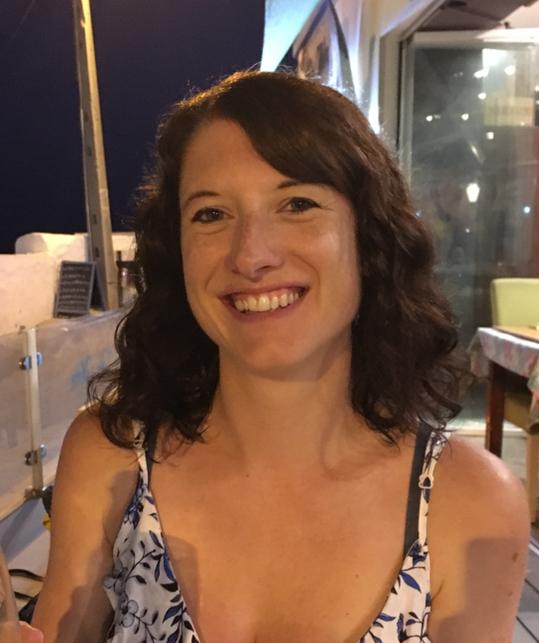 Liz Farrington, University Hospitals of Derby and Burton NHS Trust
Liz Farrington, University Hospitals of Derby and Burton NHS Trust
Liz was working as a Trainee ACP in Surgery.
“As a surgical ACP, I work with the surgical clinical team on the surgical wards and undertake on-call blocks in the surgical assessment unit, receiving and treating emergency surgical admissions.
During COVID, I worked as part of the Hospital Out Of Hours (HOOH) team to assess and review patients on the wards. I predominantly saw medical patients and was exposed to a wide range of medical presentations and complications.
My employer was aware of both my new ACP training and previous experience as a Critical Care Outreach Nurse, which meant that I was accustomed to working independently, and responding and prioritising calls as they came in.
The learning I acquired during my time with HOOH has improved my confidence in looking after any medical problems that may arise in surgical patients in my care. I feel this will improve the quality of care received by surgical patients by assisting in more timely treatment for their condition or better referral to medics when needed. Exposure to different teams and working methods have also provided some food for thought as to how we may be able to improve services within Surgery as well. I was able to continue to use and develop my skills as an ACP rather than stepping back to be “an extra pair of hands”. It meant that I was afforded an opportunity to be exposed to patient groups and situations I may not have been had redeployment not happened.”
 Toni King, Solent NHS Trust
Toni King, Solent NHS Trust
Toni was working as an Advanced Clinical Practitioner (Mental Health).
Pre-pandemic I worked as an Advanced Practitioner within Adult Mental Health Women’s Secure Services, I was redeployed as Clinical Lead for the Crisis Resolution Home Treatment Team as we scaled up, relocated and worked in partnership with local providers in order to meet COVID-anticipated demands; responding to redirection from Emergency Departments, plus increased need to expedite patient flow from mental health beds.
I led the development of the operational changes to meet the emerging clinical need. I was able to prioritise development of the service to enhance staff and patient safety; establish of new self-management resources (for staff and service-users) and adapt our eligibility criteria while mainstream services, which normally support recovery, were unavailable due to lockdown.
I took a quality improvement approach to the work to ensure the impact of the changes were evaluated. This was important to so staff could feel assured of the quality of care.
With my background as an Occupational Therapist and an Advanced Practitioner, I was able to provide expertise in the occupational and psychosocial needs of our client group. This allowed me to coach staff to adjust and extend their clinical reasoning within this changing and challenging context.
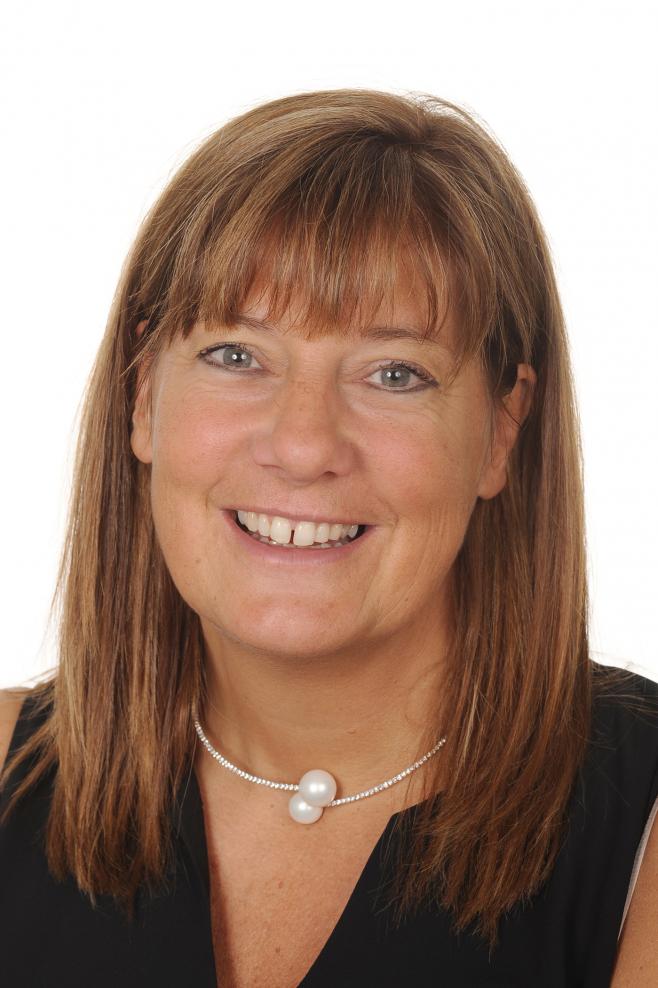 Clare Sutherland, University Hospitals of Derby and Burton
Clare Sutherland, University Hospitals of Derby and Burton
Clare was working as the Corporate Lead for Advanced Practice Acute medicine.
“The 90+ ACP team have been trained and developed to be adaptable highly skilled practitioners. Their training involves rotating between specialties to build knowledge, skill and experience for increasingly complex patients, often with multi-morbidities. This development pathway also aims to support ACP resilience and reduce anxiety when a request to move to a different area due to unexpected pressures. As a result, during times of increased pressure, the ACP service has been able to respond safely, effectively and efficiently, moving to areas of increased service demand providing consistency, contributing to patient safety and providing high-quality care.
Our Trust executive and senior clinical leaders know and trust our ACP capabilities, so during COVID, we were re-deployed to where we were needed most. This included, surgical ACPs moving to hospital out of hours, ICU, and ED; ACPs from our community wards (which emptied very early on in the crisis) were moved throughout the acute trust including ICU, MAU, acute elderly care wards (COVID and non COVID), discharge assessment and out of hours. All ward-based ACPs moved to one in two weekends to smooth out rotas. Our ACPs are a very mixed multi-professional group all trained to the same clinical standard yet maintaining the additional skills of their profession.”
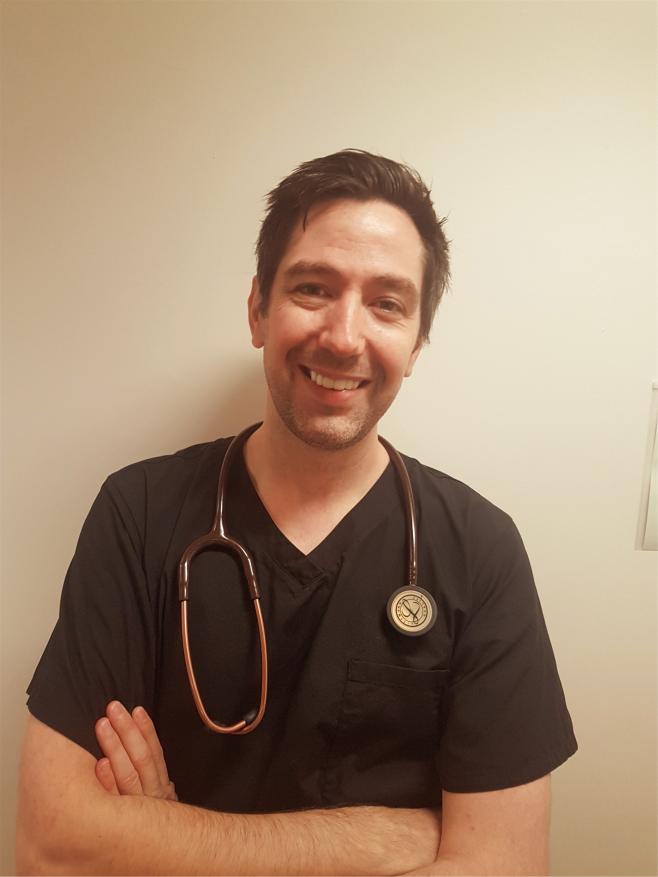 Karl Guttormsen, Northern Care Alliance (North Manchester General Hospital)
Karl Guttormsen, Northern Care Alliance (North Manchester General Hospital)
Karl was working as an Advanced Clinical Practitioner (Medicine).
As a very experienced high-risk podiatrist, I have further broadened my practice by recently qualifying as an Advanced Clinical Practitioner. I work as part of the diabetes, endocrine and general Medicine team, using my combined assessment and management skills as an advanced practitioner and as a skilled high-risk podiatrist.
During the pandemic I was deployed onto a ‘hot ward’ as part of the medical team, providing medical management for patients who were COVID positive. People are surprised that I am a podiatrist and an advanced practitioner, but my employer recognised my wider skills and allowed me to fully use them as part of the COVID response.
 Sian Sokota, Western Sussex Hospitals NHS Trust
Sian Sokota, Western Sussex Hospitals NHS Trust
Sian was working as Team lead / ACP Virtual Fracture Clinic.
I work as the Advanced Practice lead in the virtual fracture clinic. During COVID, I was redeployed to the inpatient wards as one of the team leads for a combined Occupational Therapy/ Physiotherapy team. This required leading a new multi-professional team and leading during a very stressful time in a rapidly changing environment.
This required skilful and sensitive leadership. I was able to adapt my leadership and organisational skills to my new role and was able to shift my knowledge to support my clinical decision making. My breadth of training and clinical knowledge, though in a different speciality, was transferable to the new role; in terms of thorough clinical examination, diagnostic decision making and management planning.
My educational and improvement skills enabled me to develop and train a new team in a different speciality, linking with new and existing resources, optimising patient outcomes and organisation flow.”
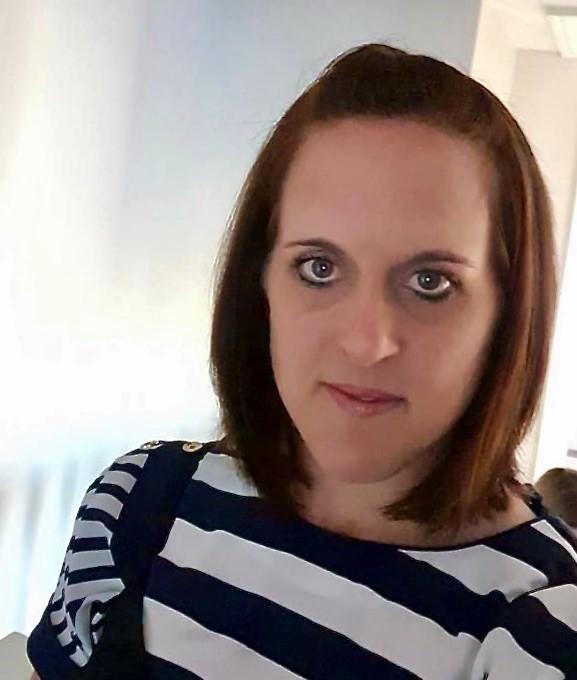 Anna Chainey, Dorset Healthcare University NHS Foundation Trust
Anna Chainey, Dorset Healthcare University NHS Foundation Trust
Anna was working as an Advanced Practitioner in Mid Dorset Community Hub supporting older patients with frailty and/or long term conditions.
“During COVID-19 I was deployed to lead on the Discharge to Assess model as co-ordinator for Discharges in Dorset County Hospital, I led patient discharges across community, acute and social care systems.
The system was aware of my training, versatility and extensive experience as an Advanced Practitioner, managing patients in acute and community settings.
As a highly skilled advanced practitioner, I was able to effectively assess and manage the risk of rapid patient discharge. My background meant I was able to lead across the different systems and professional boundaries and to train and upskill staff from all disciplines in complex discharge management. I also led on the rapid implementation and evaluation of processes that allowed for multiple team, system and process changes in a pandemic situation.”
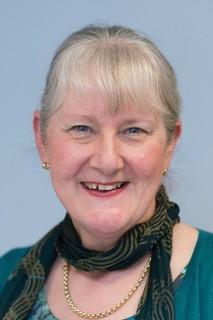 Jenny Aston, Granta Medical Practices
Jenny Aston, Granta Medical Practices
Jenny was working as a Medical Practices Advanced Nurse Practitioner/ACP General Practice
“As a highly skilled advanced practitioner in primary care, I manage complex caseloads of both acute presentations and complex, long term conditions e.g. diabetes.
During the pandemic, I helped lead the transition from face to face to a virtual triage and management triage and with setting up the Virtual Group Consultations (VGCs). I have supervised colleagues virtually to support and ensure continued learning during a challenging time. I have moved training online, including basic life support via MS Teams. I also re-thought our diabetes education materials and moved our GPN online. I have also continued to push for student and returner placements.
As part of my ACP leadership role, I have advised on COVID and post-COVID activities in the practice and Training Hub. I have also stayed involved in the cross-system and national ACP development work, representing primary care and nursing; including working on the Fit Note roll out, which has been a real challenge for many practitioners.”
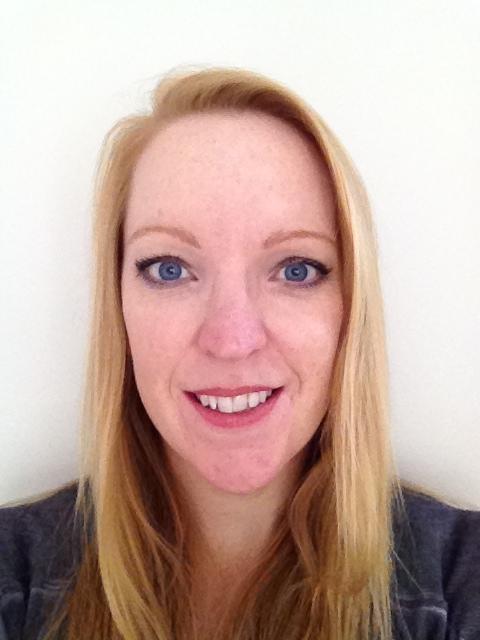 Lorraine Manklow, East Sussex Healthcare Trust
Lorraine Manklow, East Sussex Healthcare Trust
Lorraine was working as Deputy Head Orthoptist Ophthalmology Advanced Orthoptist in Glaucoma & Intravitreal injections (IVT)
“During COVID my advanced practice background in glaucoma was used to triage and manage glaucoma patients that had been deferred due to COVID-19.
I was able to use my diagnostic skills to RAG (red, amber, green) rate a patients’ need dependant on the severity of their condition. My background meant I could also discharge patients following a telephone assessment. For example, some of the glaucoma patients had undergone diagnostic tests, but not had their face to face clinical appointment where their results had been discussed with them.
On several occasions, patients’ medication would need to start or be changed; but as Orthoptists are not independent prescribers, I needed to get this initiated through a member of the medical team. This has highlighted the benefit that independent prescribing for orthoptists would bring.
I am actively involved in an ophthalmology transformation working group; to give an Orthoptics perspective into a case for change within ophthalmology, as the demand for our services currently outweighs our capacity.
COVID has accelerated this capacity issue, and we are working collaboratively within primary and secondary care to improve the sustainability of our services.”
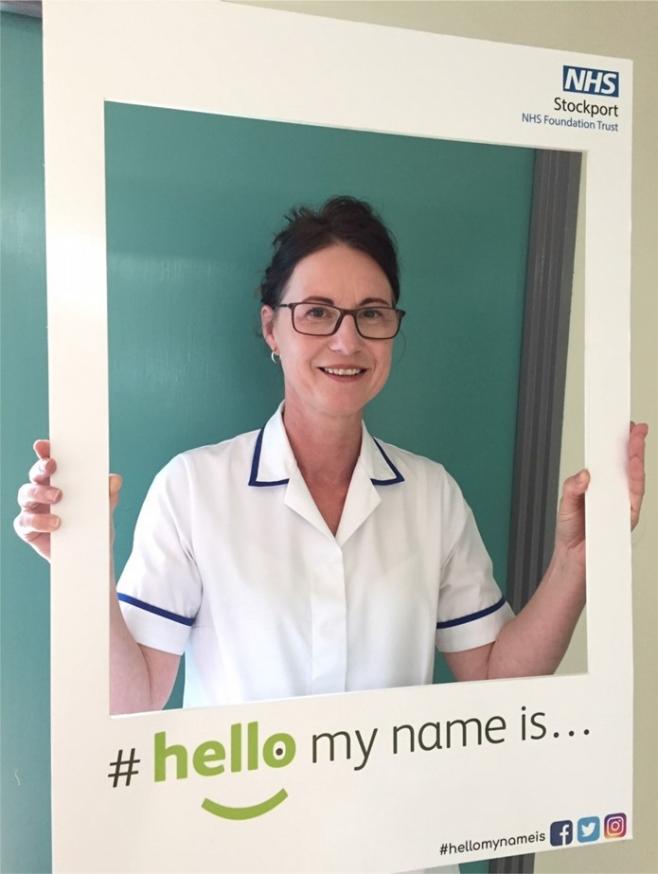 Angela Hilton, Stockport NHS FT
Angela Hilton, Stockport NHS FT
Angela was working as an Advanced Orthoptist Low Vision Service Lead for Orthoptic-Led Low Vision Service Developed telephone consultations instead of a face-to-face assessment.
My advanced clinical skills in ophthalmology mean I have the clinical expertise to triage patients and undertake telephone assessments and interventions, often with patients with profound hearing or communication challenges.
When reviewed, this work proved invaluable to shielding elderly patients and was, at times, their only communication with the outside world. My advanced skills in low vision assessment and management of visual impairment meant I was able to ensure patients could continue to access a range of treatments and services during the pandemic. This allowed them to stay mobile and improve their mental health by reducing the sense of loneliness for some elderly patients."